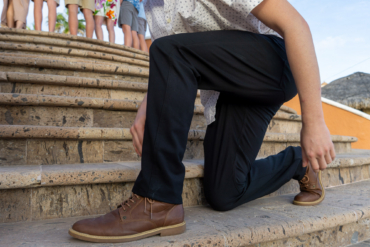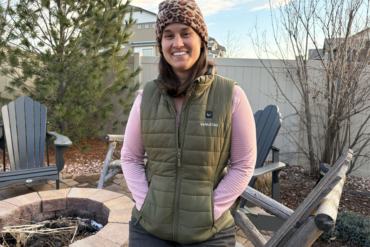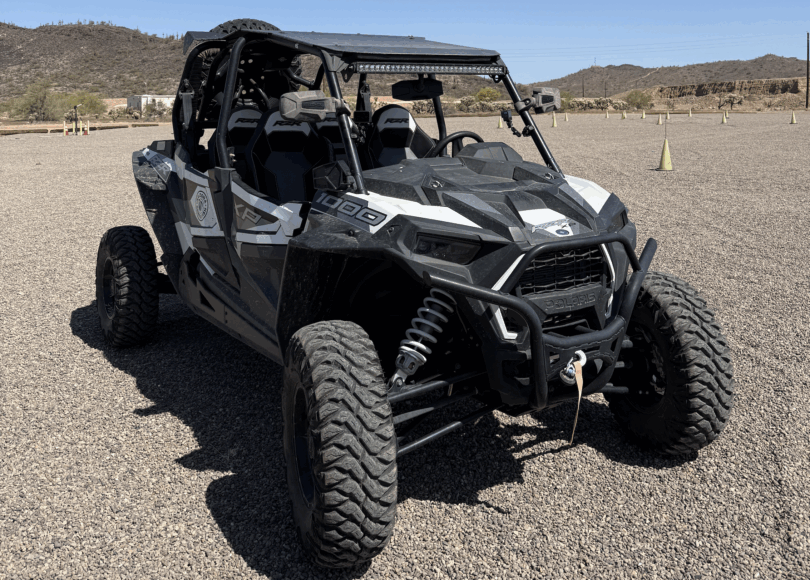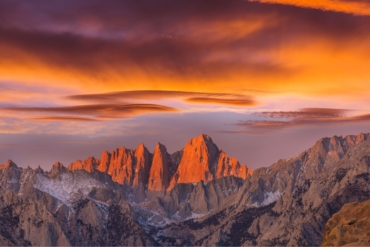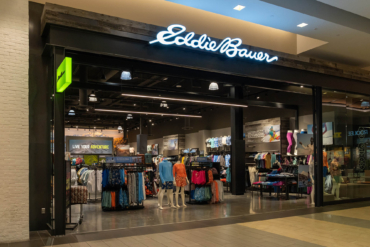You’d be forgiven for not knowing who, or what, Outdoor Vitals is. Heck, I didn’t — but a wintry overnight hike into and out of Zion National Park earned the burgeoning brand a spot on my roster (and in my gear closet).
The plan was to get to spend a couple of days with the brand’s ultralight backpack, one-person trekking pole tent, and a top quilt. To a lesser degree, I’d have some apparel to test too. However, the forecast changed and apparel became a greater interest.
I spent the overnight ensconced in Outdoor Vitals apparel from head to toe, thanks to an insulated balaclava and booties. I won’t go into detail about all of the apparel, but below are key pieces that are worth your consideration, especially if you’re building an ultralight hiking setup.
As a direct-to-consumer brand, you can buy a backpacking bundle (60L backpack, one-person trekking pole tent, and a top quilt) with a combined weight just north of 5 pounds for $785. And that doesn’t include the membership discounts.

Outdoor Vitals led my cohort of journalists on a 2-day hike. It was overcast and windy as we descended into a red-rock canyon. We set up our tents in a steady rain and awoke to a light layer of snow. The hike out began with bluebird skies followed by gray clouds full of snow. Such spastic weather conditions aren’t my favorite, but they’re great for testing gear.
I understand the purpose and pride thru-hikers have in assembling the lightest setups. Personally, I prefer to take on a few ounces more of workhorse backpacking gear and save weight on what I pack.
In short: Hiking gear always involves a calculus of weight, durability, functionality, and pricing. Outdoor Vitals gear tends to hit lightweight with an eye on durability rather than competing for the crown of lightest on the market.
First Look Review: Outdoor Vitals Backpacking Essentials

Shadowlight Ultralight Backpack 60L
The backbone of the Shadowlight Ultralight Backpack 60L backpack is a 24-inch aluminum frame to spread the load. I hiked with it filled to the brim, and it distributed the weight comfortably. The dense foam back panel protected my back from any protrusions inside the pack.
Its streamlined design puts it in the ultralight category (1 pound, 15.5 ounces), with a unique Spectra/ROBIC ripstop fabric making up most of the body. It doesn’t feel fragile and I’d guess it would withstand plenty of long hikes in rough terrain. It’s also quieter than some other ultralight fabrics.
In short: The Shadowlight backpack balances lightweight with lots of storage and adjustable/optional storage and support. Its ease of access won me over and I’d choose it over lighter, more streamlined packs. I plan on getting much more mileage out of this backpack.
Fortius 1P Trekking Pole Backpacking Tent

I pitched the Fortius 1P Trekking Pole Backpacking Tent in a bowl-shaped impression under the boughs of an evergreen. The tent was larger than I had eyeballed the space, and I was cramped while guying it out as well as when I came and went. However, I was not cramped inside the tent.
In short: This tent is best for minimalists and thru-hikers who expect a little snow or wind during their trips.
StormLoft Down TopQuilt

Top quilts have become the bedding of choice among most weight-conscious thru-hikers. Some of the more minimal designs can leave you fighting drafts and other discomfort when the weather is anything but warm.
As a side sleeper, I tend to toss and turn a lot. It’s for that reason, more than weight savings, that I prefer alternatives to the traditional mummy bag.
In short: This zero-degree top quilt offered a lot of warmth during a cold night, which is always worth the weight. There are lighter versions in the 15-degree and 30-degree range that probably make the most sense for those who mainly camp in summer.
Outdoor Vitals Apparel: Impressions
Tushar Rain Jacket
For the day one hike into a canyon around Zion National Park, I wore the Tushar Rain Jacket over the Tern Ultralight Merino Wool Hoodie. The pairing worked well because like most hard shells, the Tushar trapped enough heat and the wool hoodie kept me dry. I ended the day with only a patch of back sweat trapped by the pack.
In short: This is a rain shell that will keep you moving down the trail in wet conditions in more arid environments. One you should wear to ride out storms, rather than daily use in the Pacific Northwest.

Tern Ultralight Wool Hoodie
I was more impressed by the fit and performance of the extra-stretchy Tern Ultralight Merino Wool Hoodie, which I never took off during the trip. It uses Nuyarn, which loops merino wool over a nylon core. In fact, I’d packed a Black Diamond Rhythm Tee for the trip (my favorite running shirt), which uses Nuyarn with a different ratio of nylon and wool for a lighter, airier feel.
In short: The Tern hoodie is amazingly versatile, and its stretch is welcome while hefting a pack or rolling over in your sleeping bag. Put simply, there’s little reason to take it off.
NovaPro Jacket

The Ventus Hoodie has brought the brand the most accolades, but I opted instead for the insulated NovaPro Jacket, given the forecast of snow and wind.
In short: I’ve worn the jacket on several fall and winter hikes in Colorado and come to love its wind-fighting warmth enough to give it a full review.
Brand Philosophy
Before and during my hike I talked with members of the Outdoor Vitals team, including its founder, designer, and head of marketing. In some ways, I felt like I was tagging along on one of the brand’s monthly trips, which gives them time to hike and camp and allows for informal interactions similar to the proverbial office water cooler.
Tayson Whittaker founded the brand in 2014, mostly bulk-buying camping staples with minor tweaks. It was in 2018 that the brand took a step forward to what he calls “Outdoor Vitals 2.0.” That’s when the brand expanded its team and leveraged its success with Kickstarter projects as a way to gain new partnerships.
Then came the addition of Brigham Crane as the lead designer, who worked with the new ingredient partners to develop some of the brand’s standout products covered above.
Whittaker cites the direct-to-consumer business model for keeping its prices down compared to gear of similar quality available at retailers. That business model also assists with quality control since every return is processed internally, with notes taken, and eventually shared with the design team.
As an ethical principle, Whittaker has eschewed venture capital since the brand’s inception. He said he’s seen other brands lose their soul once they were forced to focus on monetary benchmarks.
Outdoor Vitals has moved from crowdfunding sites to tapping its audience for what it calls a store-credit membership. “That allows us to roll some investments forward, give our die-hards advantages with member perks,” Whittaker said.









